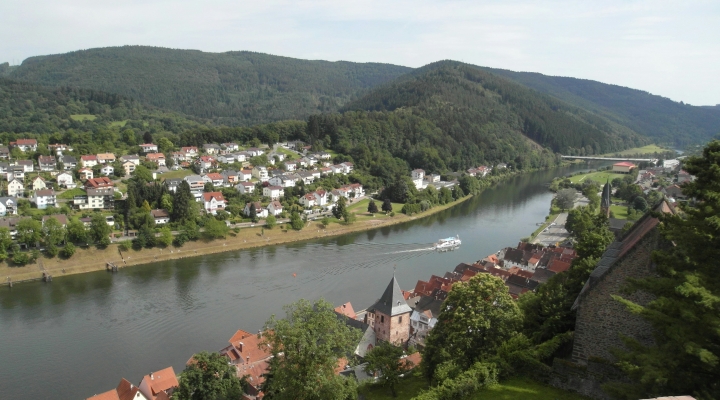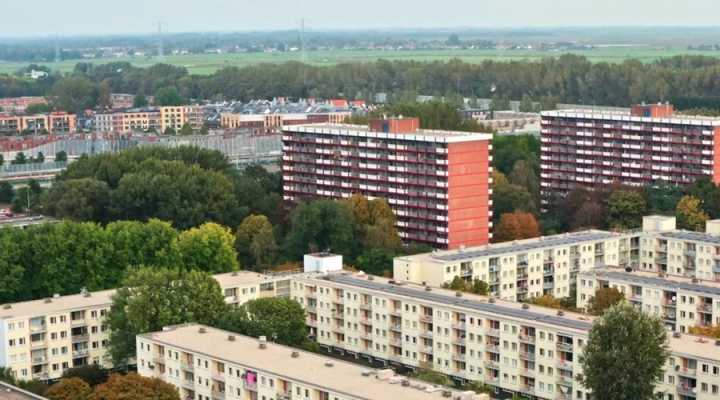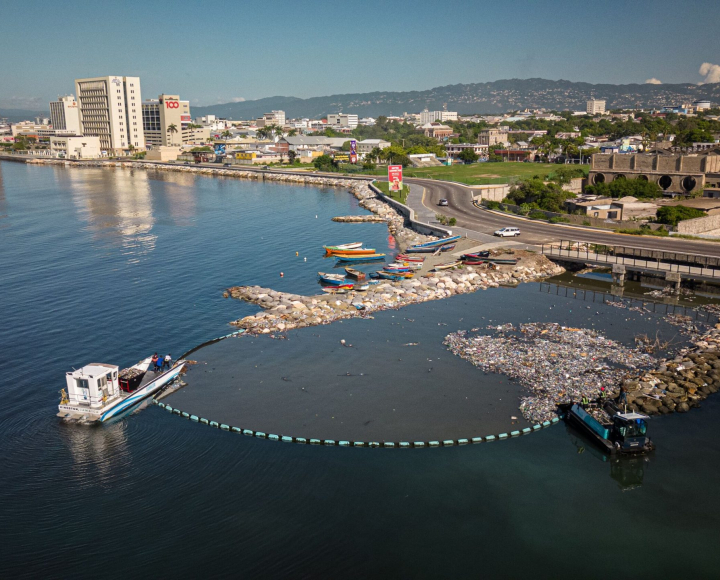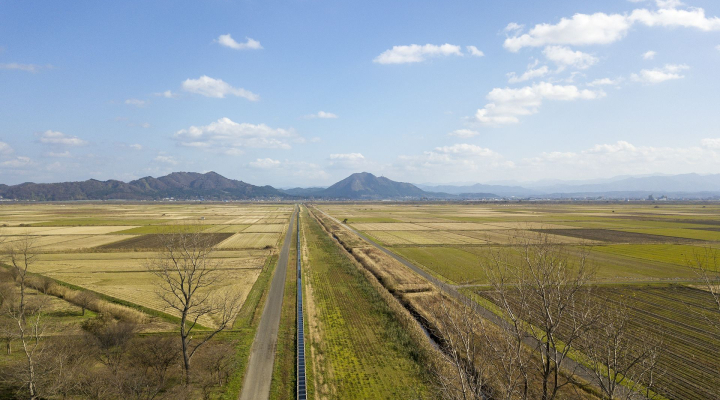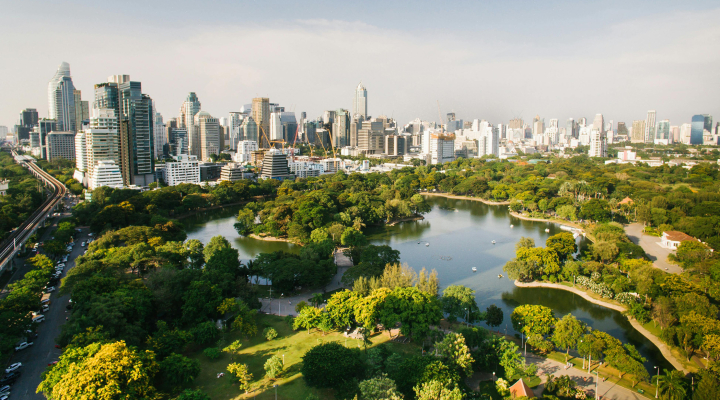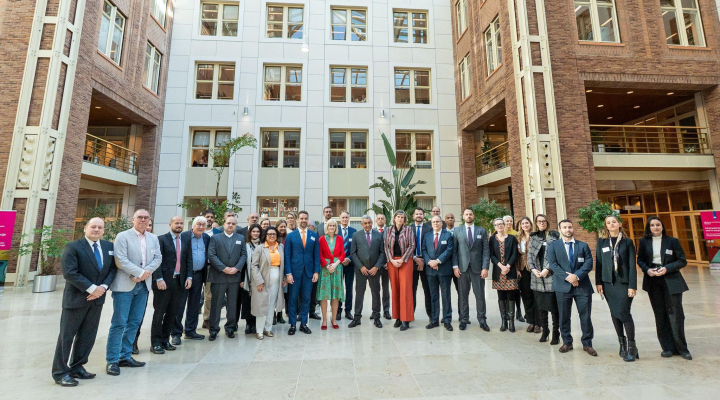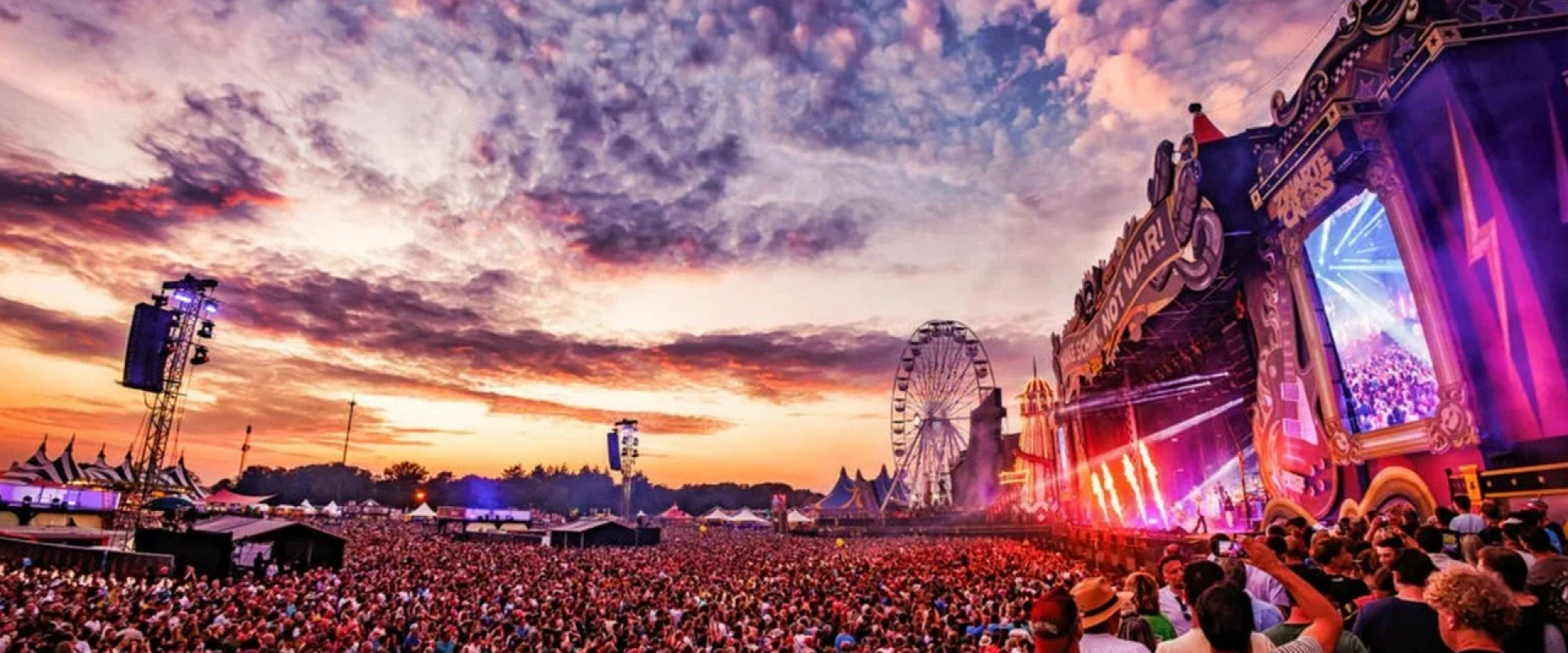
Festivals as laboratories for future-proof water management: the WijWater project at Zwarte Cross
Droughts, extreme rainfall events, and growing pressure on drinking water supplies – the climate crisis presents complex water challenges for societies worldwide. An unexpected setting brings these challenges into sharp focus: festivals. From 17 to 20 July 2025, the Dutch Zwarte Cross festival served as a testing ground for innovative and circular water management. It was part of the WijWater project: a collaborative initiative between Zwarte Cross, the Dutch Government, and partners from the water sector. The project offers valuable insights for urban areas, agriculture, and industry.
Launch of the WijWater project in 2024
Attracting 275,000 visitors each year, Zwarte Cross consumes significant volumes of water for showers, toilets, drinking water, and cleaning. The resulting wastewater places a heavy burden on the local infrastructure. In 2018, the regional water authority concluded it lacked the capacity to process the festival’s peak loads effectively. This led to the first water-saving interventions in 2019: vacuum toilets and switching from drinking water to surface water for flushing.
Additionally, the European Water Framework Directive (WFD) mandates that, by 2027, wastewater treatment facilities must meet significantly stricter discharge standards. This combination of urgent regulations and operational bottlenecks prompted the launch of the WijWater project in 2024. The project transformed the festival site into a four-day ‘mini-society’ in which sustainable and circular water solutions are tested. Water is purified, stored, and reused on-site.
Zwarte Cross’ innovative water solutions
In 2024, water quality took centre stage at Zwarte Cross. In 2025, the focus shifted to water availability and management. The festival acted as a testing ground for a broad range of innovations:
- On-site wastewater treatment
The BluElephant – an innovative mini-treatment unit – was installed to biologically purify wastewater using activated carbon, UV light and filtration. The treated water was clean enough to irrigate growing strawberries on-site. Afterwards, it was discharged safely into the soil or a nearby creek.
- On-site groundwater purification
Groundwater was also treated using the BluElephant. It produced safe drinking water directly on-site. On the festival’s opening day, visitors had a symbolical toast with glasses of freshly purified water.
- Water-saving technologies
The festival used vacuum toilets, PowerShowers which reduce water use by up to 90%, and surface water for flushing toilets
- Smart drainage
Researchers tested a smart drainage system beneath the festival grounds. This innovation enables rainwater to be drained or retained based on weather conditions, supporting drought resilience and flood prevention.
- The ‘glasbak’
Another research project was the ‘Glasbak’: an underground rainwater buffer that stores water for use during dry periods or in case of water extraction restrictions.
- Urine as fertiliser
Specially designed unisex toilets collected urine which was processed into ammonium sulphate – a valuable fertiliser for agriculture. Around 60,000 litres of urine were converted into 11,000 litres of fertiliser. It was enough to grow approximately 38,000 kilograms of potatoes. Hypothetically, these could be sold at the festival as chips – a striking example of a closed loop.
- ‘Mestzak city’
The ‘Mestzak City’ system was deployed again following its success in 2024. This smart buffering solution temporarily stores up to 3 million litres of wastewater. Over time, this will be gradually discharged. This solution reduces impact on the local treatment facility.
The above innovations and experimentations made Zwarte Cross a living laboratory for circular water management. Their ultimate ambition: to create a fully closed water cycle on the festival site.
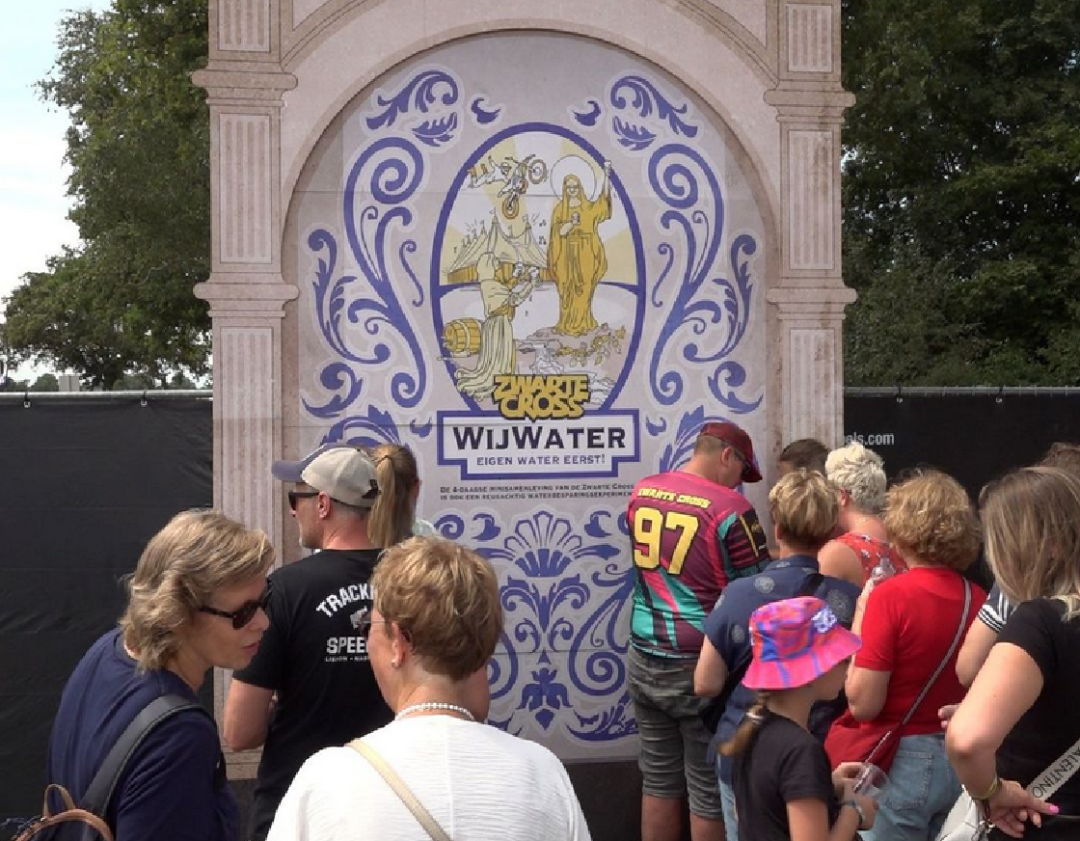
Dutch innovation and European collaboration
The WijWater project exemplifies Dutch innovation and collaboration in the water sector. Zwarte Cross collaborates with 19 dedicated partners: Green Deal Circular Festivals, drinking water company Vitens, water authorities Rijn en IJssel and Vechtstromen, the Ministry of Infrastructure and Water Management, Samenwerking Water Achterhoek+, the Municipality of Oost Gelre, NieuWater, De WaterBank cooperative, De Twentse Golf, Waterstromen, Water4All, Altop Products, Bronbemaling.com, Feestfabriek Alles Komt Goed, Jotem Water Solutions, Nijhuis Saur Industries, Royal Eijkelkamp, and MTD. Together, they combined technical expertise, policy insight, and operational capacity.
The 2024 pilot also marked the start of a multi-year collaboration under the Green Deal Circular Festivals (GDCF). This European cooperation brings together frontrunners from the festival industry to accelerate the transition to circular and climate-neutral events. Facilitated by the Dutch Ministry of Infrastructure and Water Management, the GDCF promotes collaboration, knowledge exchange, and scalable solutions. Participating festivals commit to developing sustainable practices, inspiring their visitors, and serving as examples for the broader events sector.
Festivals as ‘Windows to Society’
The Zwarte Cross exemplifies that festivals are more than cultural gatherings. They function as miniature societies where all key systems converge: water, energy, food, waste, human behaviour, and technology. With their diverse audiences, temporary infrastructure, and high intensity of use, festivals offer a realistic testbed for sustainable solutions. Their temporary nature allows innovations to be implemented and adjusted quickly. Simultaneously, direct interaction with visitors provides valuable real-time feedback.
Festivals also reach audiences that are often harder to involve in public research. They provide space for experimentation and help make complex challenges tangible. This makes festivals powerful platforms for societal innovation and system transformation. They are a valuable model for how cities and regions can address sustainability and climate adaptation.
The WijWater project delivered important insights in 2024: events can serve as a bridge between regulation and innovation. For festival organisers, circular water systems are essential for long-term resilience. For governments, festivals can function as living labs for policy application. And for businesses, they provide realistic conditions for testing technologies with potential for upscaling in urban, agricultural or industrial settings.
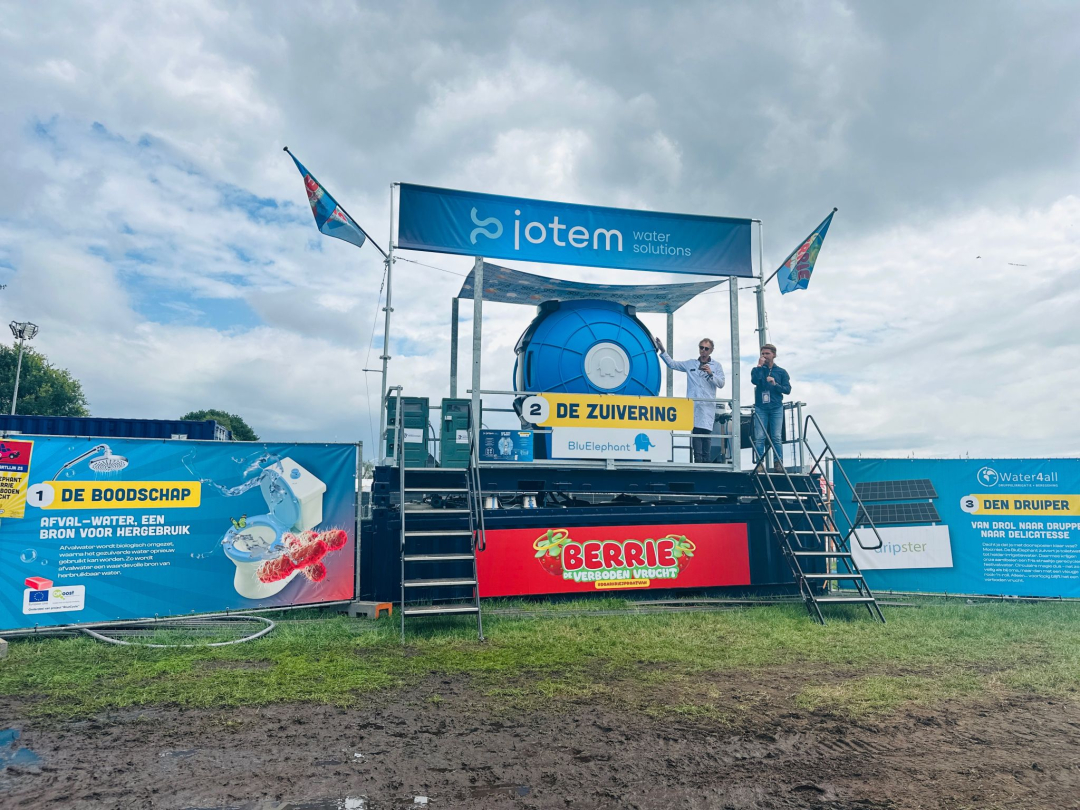
Knowledge sharing and next steps
The lessons learned are actively shared with other festivals, municipalities, and water authorities – both nationally and internationally. Examples include initiatives like DGTL and SAIL in Amsterdam, or Decibel and Awakenings in North Brabant. The ambition is clear: what works at Zwarte Cross can be applied elsewhere – not only at festivals, but also in cities, farming regions, and industry.
Want to learn more about the lessons from WijWater?
A report (in Dutch) on the WijWater 2024 project highlights key takeaways for scaling circular water systems at events. Download the report here.




